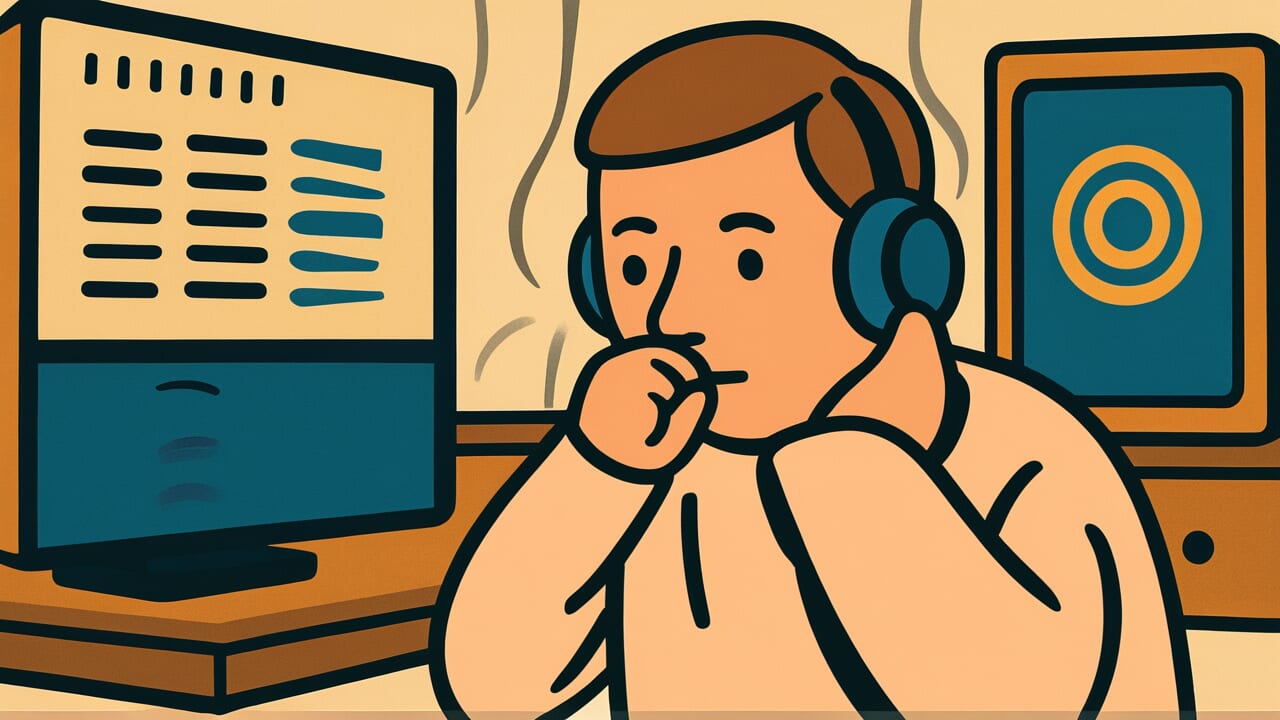How to Read “The more you hear, the angrier you get”
Kikeba kikihara
Meaning of “The more you hear, the angrier you get”
“The more you hear, the angrier you get” is a proverb that means the more you listen to something, the more irritated you become.
It describes situations where things you wouldn’t have cared about become upsetting once you hear the details.
This proverb applies when unnecessary information disturbs your peace of mind.
For example, everyone has experienced listening to gossip about someone and gradually getting angrier as you learn more details about their actions or words.
Sometimes, the more you hear about how a problem developed, the clearer someone’s dishonesty or irresponsibility becomes, and your anger builds up.
Even today, this applies when you’re scrolling through someone’s social media posts and gradually getting more irritated by what you see.
This proverb accurately captures human nature: you could have stayed calm if you hadn’t known, but learning the information disturbs your emotions.
Origin and Etymology
There don’t seem to be clear written records about the origin of “The more you hear, the angrier you get.”
However, we can make interesting observations from the structure of this phrase.
First, let’s focus on the expression “kikihara” (hearing-belly). Japanese has many emotional expressions using “hara” (belly).
Examples include “hara ga tatsu” (belly stands up, meaning to get angry), “hara ni suekkaneru” (can’t settle in the belly, meaning unbearable), and “haraguroi” (black belly, meaning cunning).
The belly has long been considered the seat of emotions, especially anger and discomfort. This shows that ancient Japanese people felt emotions originating from the abdomen.
“Kikihara” is likely a word that expresses “anger arising from hearing” in a single term.
Such creative expressions probably emerged naturally from wordplay among common people during the Edo period or from everyday conversation.
Particularly interesting is the combination with “kikeba” (if you hear), which shows a condition.
This carries the implication “you could have stayed peaceful if you hadn’t known.”
In village societies and tenement housing where human relationships were close, people often overheard gossip and others’ behavior, which frequently caused discomfort.
This expression likely arose from such lived experiences.
This proverb concisely expresses the ironic truth of human society: gaining information doesn’t necessarily lead to happiness.
Usage Examples
- As I heard more details about how the client handled things, the more you hear, the angrier you get—I just got more upset
- That matter is a case of the more you hear, the angrier you get, so I’ll stop asking for details
Universal Wisdom
The universal truth shown by “The more you hear, the angrier you get” is the delicate relationship between information and emotions.
Humans instinctively seek information, but not all information makes us happy. Often, we’d be more peaceful not knowing.
This proverb has been passed down through generations because it perfectly captures the dual nature of information in human society.
We have a desire to “know the truth,” yet we also carry the contradiction of “being hurt by knowing.”
The more details we learn, the more we see the intentions behind others’ words and actions, and the complexity of situations. We can no longer simply let things slide.
Particularly interesting is that this proverb includes the regret of “I wish I hadn’t heard that.”
People seek information out of curiosity, but even knowing the result will be discomfort, they can’t stop listening.
This difficulty in self-control may be a fundamental human weakness.
Our ancestors teach us through this proverb about the importance of maintaining an appropriate distance from information.
You don’t need to know everything. Sometimes you need the attitude of “ignorance is bliss.” This life wisdom is embedded here.
When AI Hears This
Before receiving information, our minds exist in an ambiguous state of “might get angry, might not get angry.”
This resembles the superposition state in quantum mechanics. However, the act of “hearing” works like an observation device that instantly determines this ambiguity.
What’s interesting is that information has directionality. The second law of thermodynamics states that entropy, or disorder, only increases and doesn’t naturally decrease.
Similarly, once you know information, you can’t return to the “didn’t know” state. Once emotional entropy called anger is generated, returning it completely to zero is extremely difficult.
The calm state before knowing is forever lost by the irreversible arrow called information.
Even more noteworthy is the relationship between information quantity and emotional fluctuation.
In information theory, unexpected events carry more information. In other words, information accompanied by surprise like “I can’t believe that happened” has a greater emotional impact.
What could have been zero information bits if unheard flows into the mind as massive information bits the moment you hear it, destabilizing the entire system.
Knowing is observation, and observation always affects the system. This physical law also holds true in the world of human emotions.
Lessons for Today
What this proverb teaches modern people is how to deal wisely with information.
We live in an age of information overload. Social media, news, workplace gossip—we’re in an environment where we can access endless information if we want to.
But does chasing all information truly lead to our happiness?
What’s important is pausing before obtaining information. Ask yourself: “How will I feel after knowing this?” “Do I really need this information?”
Especially for information that won’t improve the situation even if you know it—like criticism of others, gossip, or details of past troubles—you need the courage to keep your distance.
Also, if you’ve already started feeling uncomfortable, you have the option not to dig deeper.
Rather than following your curiosity to the end, prioritizing your peace of mind is adult wisdom.
Your mental health is something you must protect yourself. Choose your information, and sometimes choose not to know.
This proverb reminds us of that freedom.



Comments